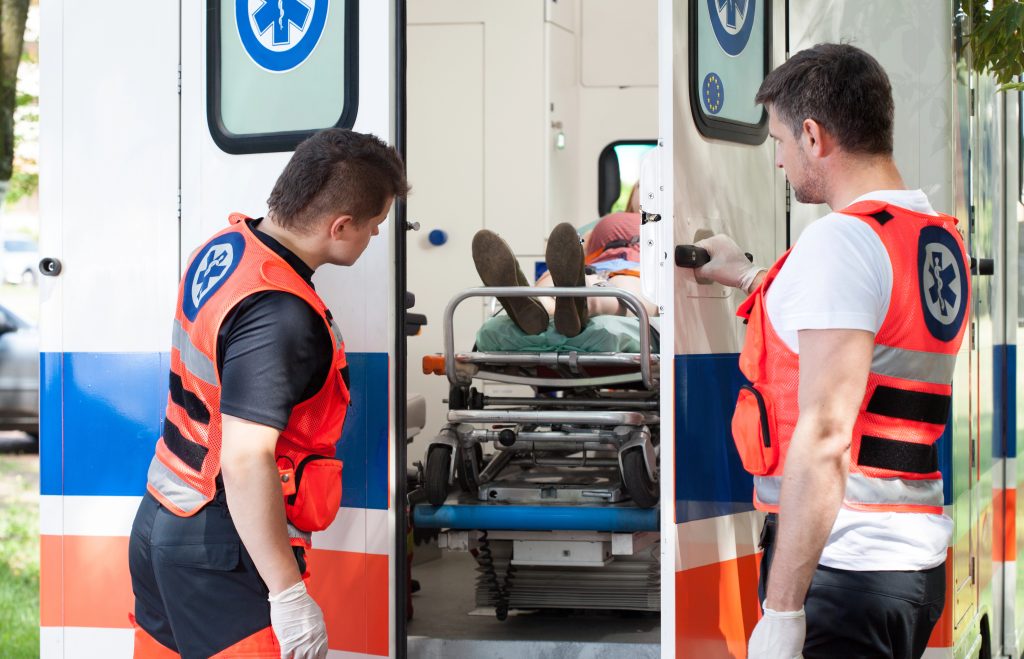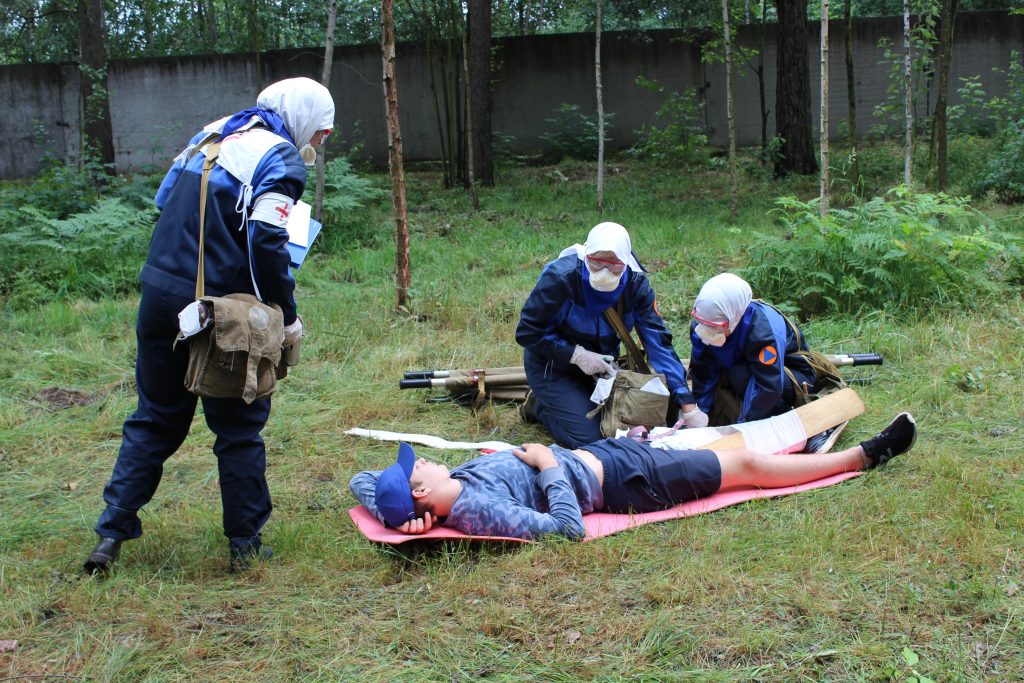
“Being ready induces deterrence, and deterrence decreases the likelihood [of war],” said Afghanistan war veteran and MP Mike Martin, repeating the bleak reality that the world is on the brink of huge war than at any moment in decades. The ratcheting up of tensions between Iran and Israel, with those relations spilling over into China and Russia, have brought back fears not seen since the darkest days of the last century. For grownups worried about world war and the safety of their jobs, the question then becomes: what type of jobs might provide protection from the draft in case the worst occurs?
History has a playbook. In World War II, whole categories of workers—farmers, doctors, nurses, bakers, and engineers—were deemed so critical to the home front that they were exempted from the draft. Now, with the shadow of conscription looming large again in public debate, knowing what kinds of work are necessarily going to be considered necessary can be reassuring as well as useful advice. This listicle delves not only into the precedent of the past but also into why new technology and changing national priorities are redefining necessary work.

1. Medical Professionals: The Indispensable Lifeline
Doctors and nurses have long provided the backbone of any country’s war effort. In World War II, medical doctors were never called up, their expertise too valuable to be removed from the war effort. This established precedent continues in force: UK Parliament records indicate that medicine was specifically cited as one of the professions reserved from the National Service Act of 1939.

Nowadays, in this era, the work of doctors has become more precious. As the president of the Uniformed Services University of the Health Sciences Dr. Jonathan Woodson emphasized in the 2024 AUSA forum, “People are at the center of providing care, whether it is in the deployed space or whether it’s garrison.” Digital innovation such as telemedicine and AI-based diagnosis now widens the scope of medical staff, but the human factor cannot be replaced. Military health officers have noted that, while technology is closing gaps, “the key to military health care will always be people.”

2. Food Supply Chain Workers: From Farmers to Robotics Engineers
The skill of being able to supply a country with food when it is at war is precious. Historically, farmers and bakers have been drafted selectively so that the food supply can be maintained consistently. In a war in the twenty-first century, the exemption will probably be granted for a larger portion of workers involved in the food supply chain, from logistics planners to even robotics engineers.

The food industry is reputedly vulnerable, with all stages in the chain from field to plate susceptible to interruption. Robotics and artificial intelligence are now a necessity for soil health monitoring, automated harvesting, and ensuring food safety, reports the Forbes Technology Council. As automation becomes part and parcel of food security, their operators, designers, and servicers are likely to become designated as essential, maybe exempting them from the draft alongside traditional field staff.

3. Engineers: The Architects of Resilience
Engineers have perpetually been at the forefront of national defense and infrastructure. Throughout both World Wars, engineers were among professions too valuable to be drafted. Their expertise on staying put and engineering anything from bridges to communications networks is invaluable in times of need.
The work of the engineers today encompasses cybersecurity, artificial intelligence networks, and the safeguarding of critical infrastructure. The UK Parliament records and the latest government statements assure us that engineering is a bedrock of national security. Engineers who are working in energy, water, and digital infrastructure will be exempted last in a war in the modern era, and thus the country’s backbone will remain intact.

4. Supply Chain and Logistics Specialists: Storing the Arsenal
Behind every successful war operation is a network of logistics that is both intricate and vast. In WWII, people who oversaw civilian defense operations as well as police departments were frequently exempted as they played a crucial role in supply as well as order. Military supply chains today have increased their scope and complexity by hundreds of times.
As of 2021, according to a GAO report, sourcing strategic parts processing delays have impaired mission readiness up to an average of 34%. Today’s logistics experts, especially those using AI and machine learning to minimize inventory and predict disruption, are worth as much as the front-line soldiers. As Avathon Government’s Art Sellers puts it, “AI can predict supply chain delays and then compute what information decision-makers need in order to avoid or even pre-empt those delays.” During times of global conflict, the ones guaranteeing provision of weapons, medicine, and food will prove invaluable.

5. Digital Health and Telemedicine Experts: The New Frontline
The COVID-19 pandemic accelerated the adoption of telehealth, but its roots in military medicine go back decades. Telehealth enables medical expertise to reach remote or contested environments, reducing the need for risky evacuations and extending care to those on the front lines.
The U.S. Military Health System has led the way in telehealth in both deployed and non-deployed environments, enabling “physician extenders” to deliver hands-on care under remote guidance. With digital health being at the center of military readiness, telemedicine platform experts, health data cybersecurity professionals, and remote diagnostic experts will likely become viewed as indispensable and part of doctors and nurses in their exception from conscription.

6. Conscientious Objectors: Non-Combatant Service with Critical Significance
Exemptions don’t necessarily have to be occupational. During World War II, individuals who would not fight on moral or ethical principles—conscientious objectors appeared before tribunals and were frequently relegated to non-combatant service. These included ambulance driving, civil defense, and critical support services.
Though the procedure would prove difficult, it appreciated the contribution of those who would not bear arms but serve. In a future conflict, the precedent established by awarding alternative service for conscientious objectors will probably prevail, offering a mechanism for individuals of strong conscience to be useful members of the national effort.

7. Civil Defense and Emergency Services: The Home Front Guardians
When the conscription net was thrown wider in WWII, even police service, firefighting, and civil defense were exempted from the military draft. The explanation was straightforward: a country besieged requires order, security, and quick reaction to emergencies on the domestic front.

Civil defense today incorporates disaster response coordinators, emergency medical technicians, and cybersecurity incident responders. They are tasks increasingly perceived as sitting at the very center of the country’s survival, particularly given the newly emerging threats of cyberattacks and sabotage of infrastructure. All of these will most probably be exempt from the draft.

8. Technology and AI Experts: Defending the Digital Battlefield
War in today’s day and age is as much about bullets as bytes. Cybersecurity specialists, artificial intelligence specialists, and digital infrastructure engineers are taking the nation to defense these days. Their efforts to secure communications, the power grid, and sensitive information are paramount in keeping operational security in check.
As the defense analysis most recently emphasized, increased reliance upon cyber systems results in the fact that whoever controls the means to rebuff computer-based assaults and keep ahead technologically will, by and large, be indispensable. In a world war, persons such as these may actually be exempt from general conscription and instead used to defend the country’s cyber citadels.
The histories are enlightening: when there are crises of being, states draw back from the battlefield to look for their heroes. Behind the battlefields and the field hospitals, behind the data centers and the supply bases, are the real pillars of national power: workers who are necessary. With the world uncertain once again, it is not only comforting to know which careers will be exempt from the draft but a guide for those who want to serve their nation in the most important way possible. Ultimately, it is these irreplaceable positions driven by talent, passion, and ingenuity that could be the real front line in the war to come.


